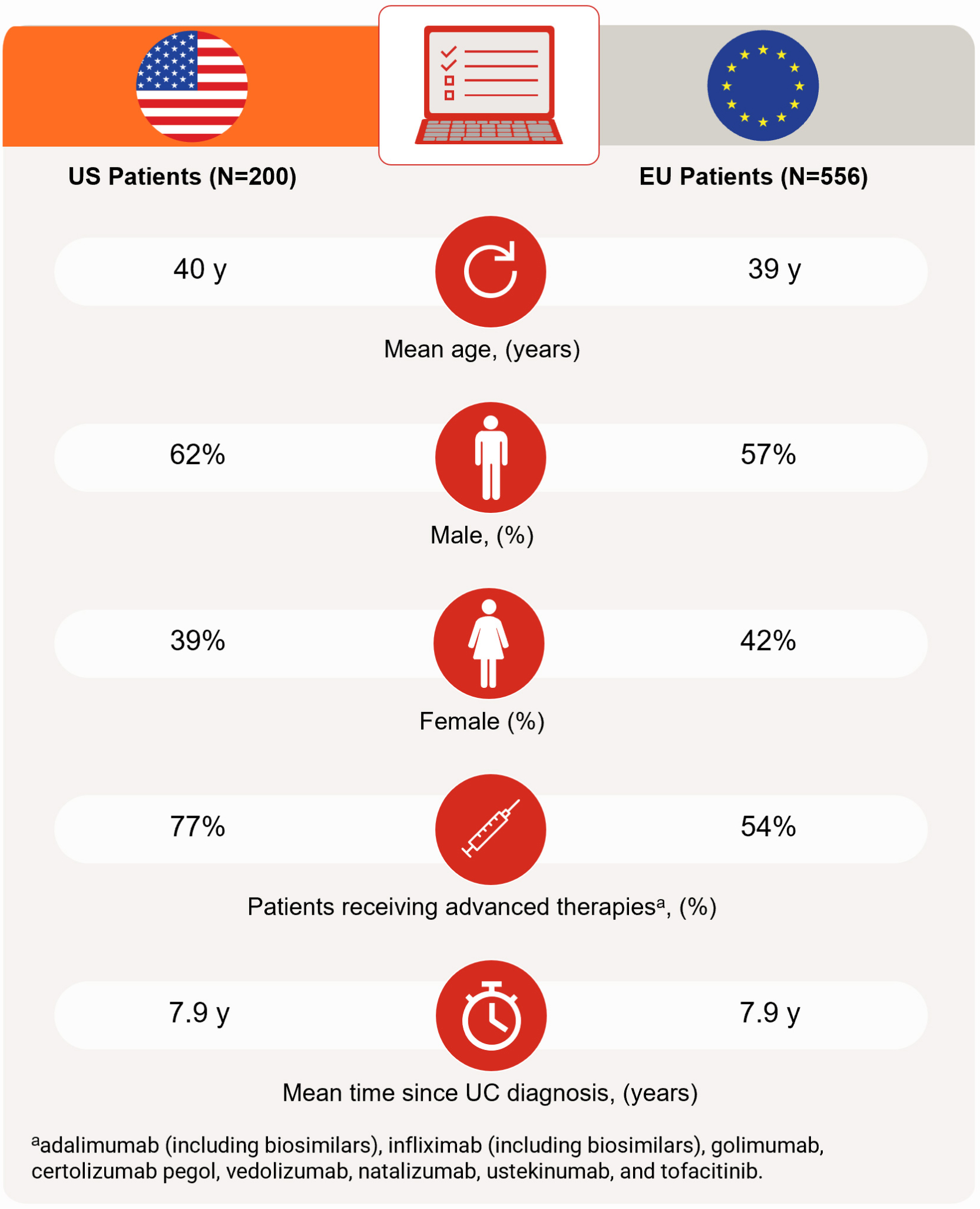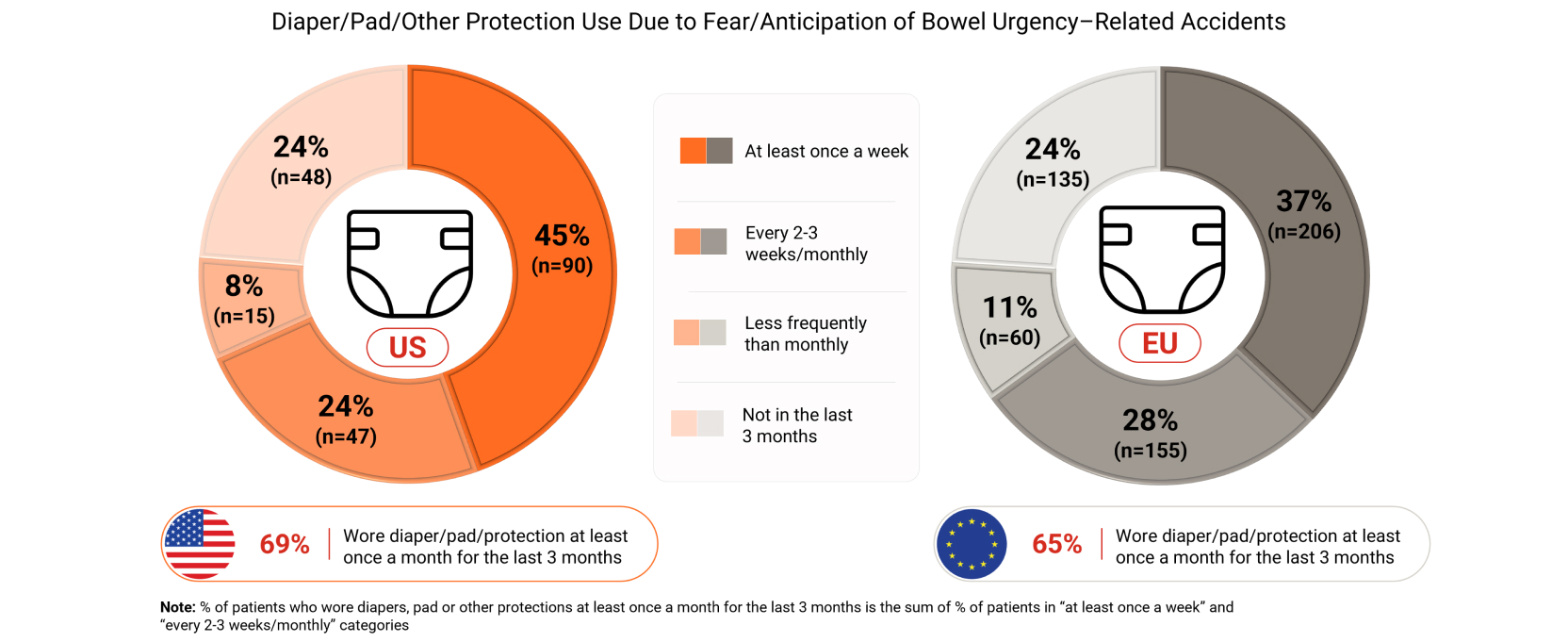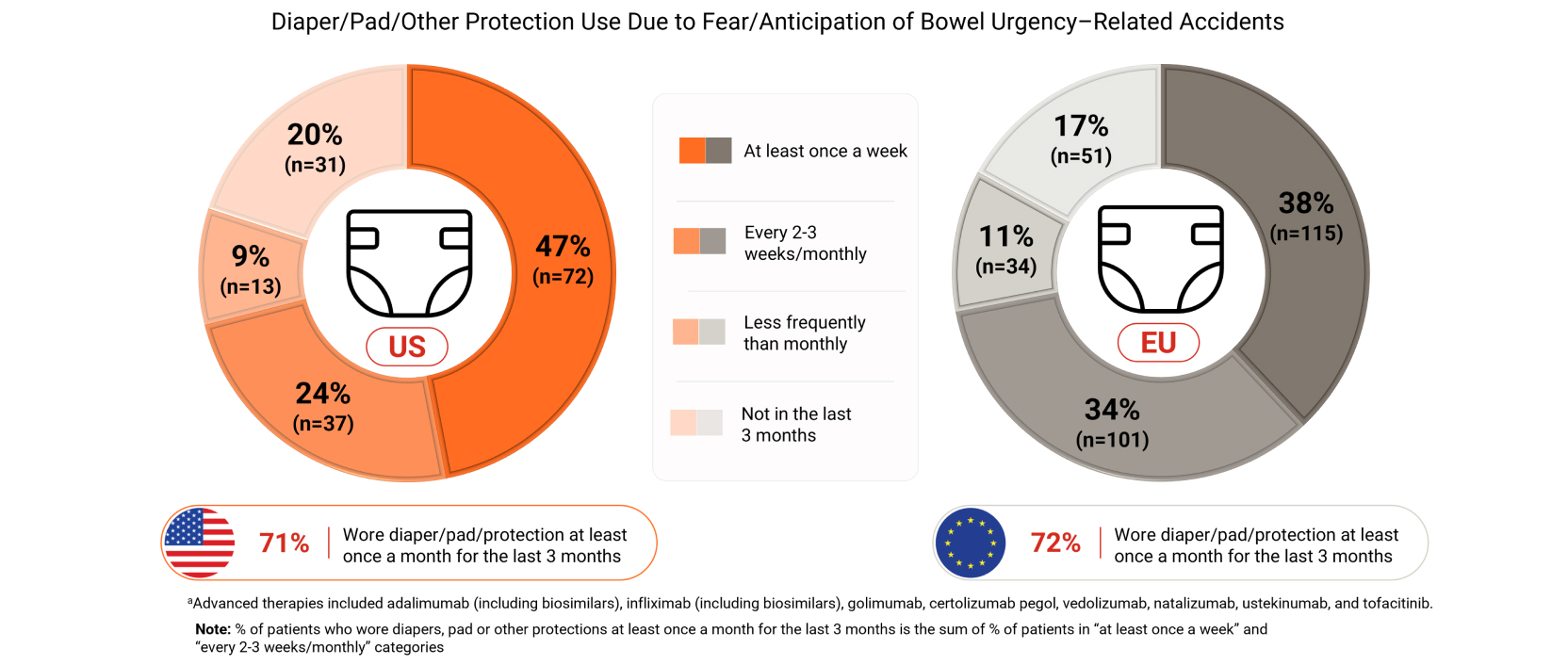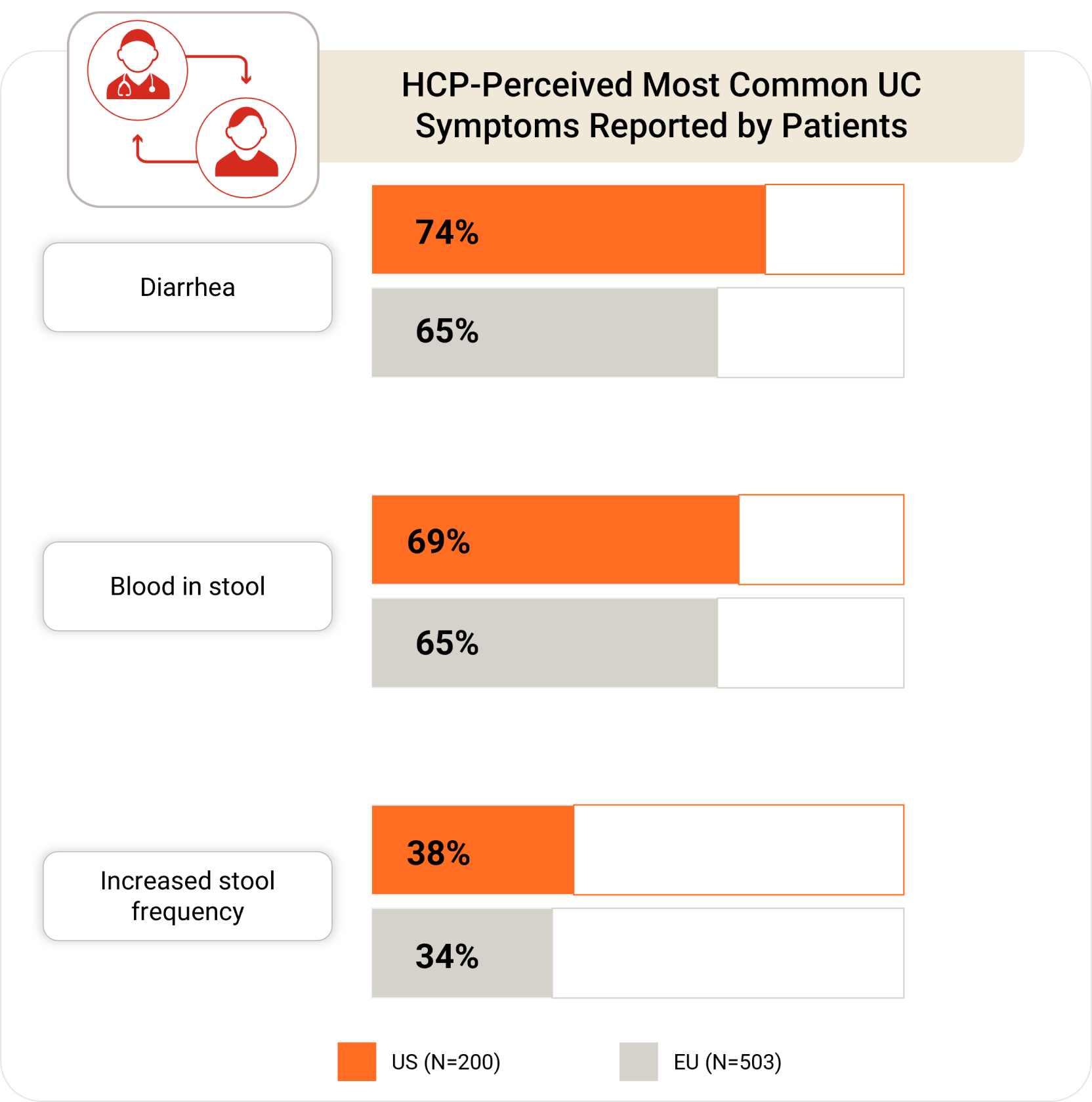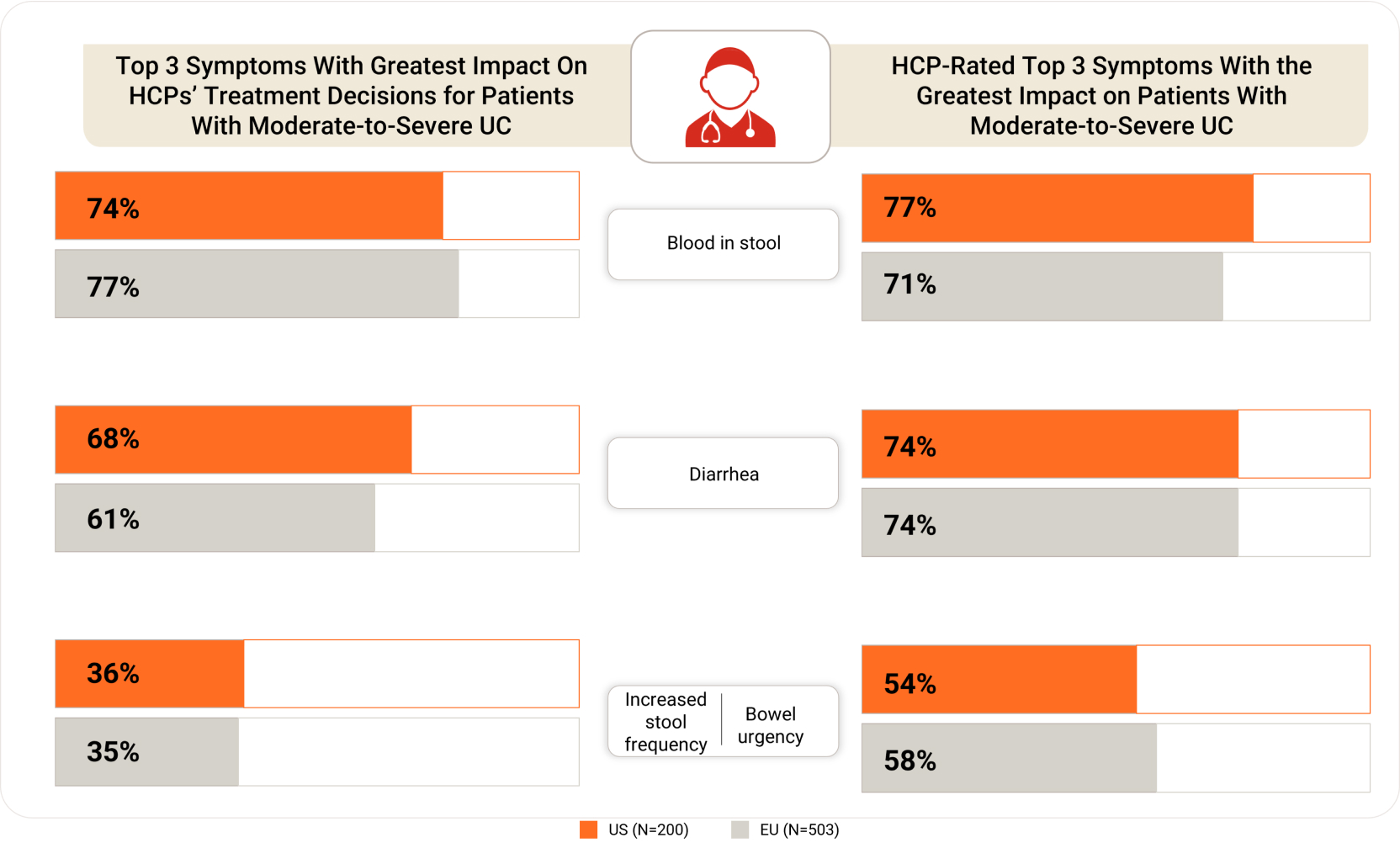The Communicating Needs and Features of IBD Experiences (CONFIDE) Study
Explore the Impact of UC Symptoms: Insights from the CONFIDE Study
Discover valuable insights into the impact of ulcerative colitis (UC) symptoms on patients’ lives through the Communicating Needs and Features of IBD Experiences (CONFIDE) Study. This research initiative delves into the experiences of patients with moderate-to-severe UC, shedding light on critical aspects such as:
- Patient Demographics and Characteristics: Understand the baseline demographics for the United States (US) and European (EU) patients that participated in the study
- Key Symptoms: See data on the prevalence of symptoms, including diarrhea, bowel urgency, and increased stool frequency
- Diapers/Pads/Protection Usage: Learn about the use of protective measures by patients due to fear of bowel urgency-related accidents
- Impact on Social Activities and Sexual Function: Explore how UC symptoms influence patients’ participation in social events, work, school, sports, and sexual activity
- Healthcare Provider - Patient Communication: Discover how healthcare providers (HCPs) view symptoms of moderate-to-severe UC and explore communication gaps between HCPs and patients
By bridging the gap between patient experiences and healthcare professionals, the CONFIDE Study aims to enhance patient care and communication.
1. Patient Demographics and Characteristics1
2. Key findings from the CONFIDE US and EU dataset1
To assess the burden of UC-related symptoms, patients were asked a series of questions that involved selecting from a list of 30 symptoms. Diarrhea, bowel urgency, and bowel urgency-related accidents were the top 3 most impactful symptoms whereas diarrhea, bowel urgency, and increased stool frequency were the most frequently reported symptoms experienced by patients with moderate-to-severe UC in the US and EU.1
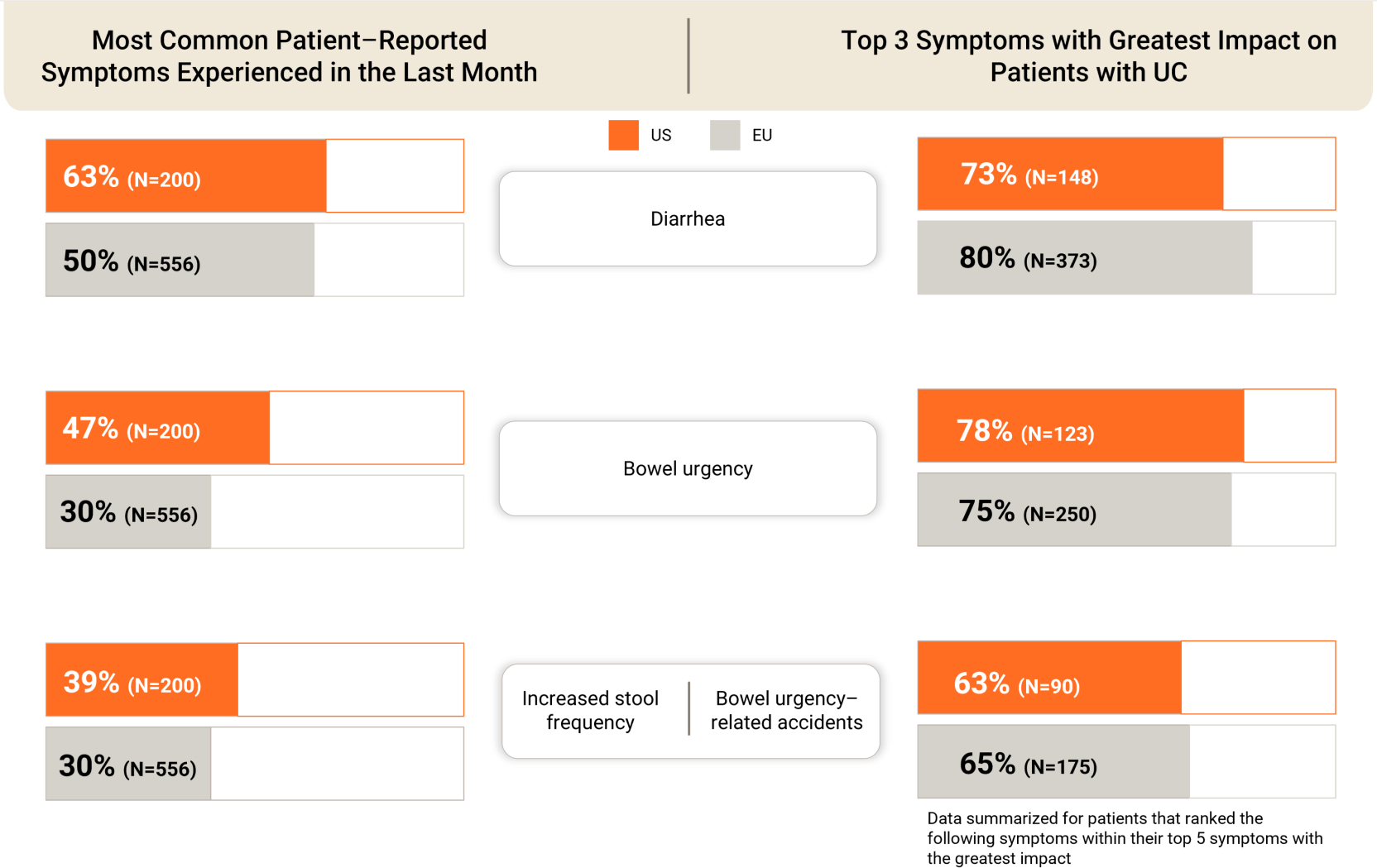
3. Use of diapers, pads or other protection in the last three months due to fear/anticipation of bowel urgency-related accident2
Patients with UC were asked if they had to wear a diaper/pad/other protection due to fear or anticipation of fecal urgency incontinence (i.e. bowel urgency-related accident) in the past 3 months. The majority of patients in both the US and Europe reported wearing diaper/pad/protection at least once a month in the past 3 months. This finding was also consistently reported in patients that received advanced therapies.2
4. Impact of UC Symptoms on work/school life, social life, and ability to participate in sports/physical exercise3
Patients were asked if they had previously declined participating in work/school, social events, or sports/physical exercise within the last 3 months. Patients then selected from a list of reasons that included common UC symptoms why they had declined participation. Bowel urgency and fear of bowel urgency-related accidents were among some of the top reasons listed as to why they had declined participating in daily activities. These findings were consistent in both the US and European patients.3
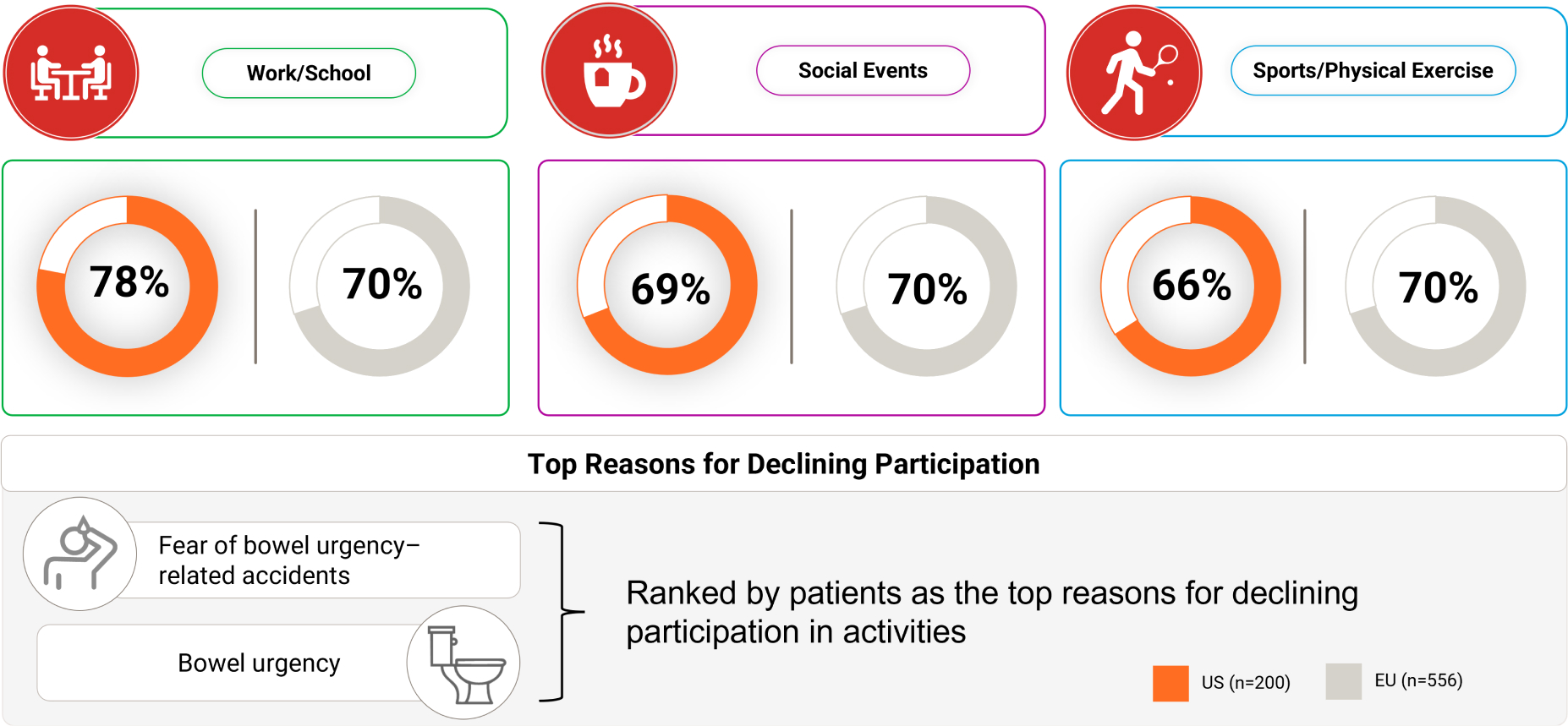
Patients avoiding or decreasing sexual activity due to UC4
Patients were asked if within the last 3 months they had avoided or decreased sexual activity because of UC. More than half of the patients with UC surveyed opted to either abstain from or reduce sexual activity.4
Patients Avoiding or Decreasing Sexual Activity Due to UC
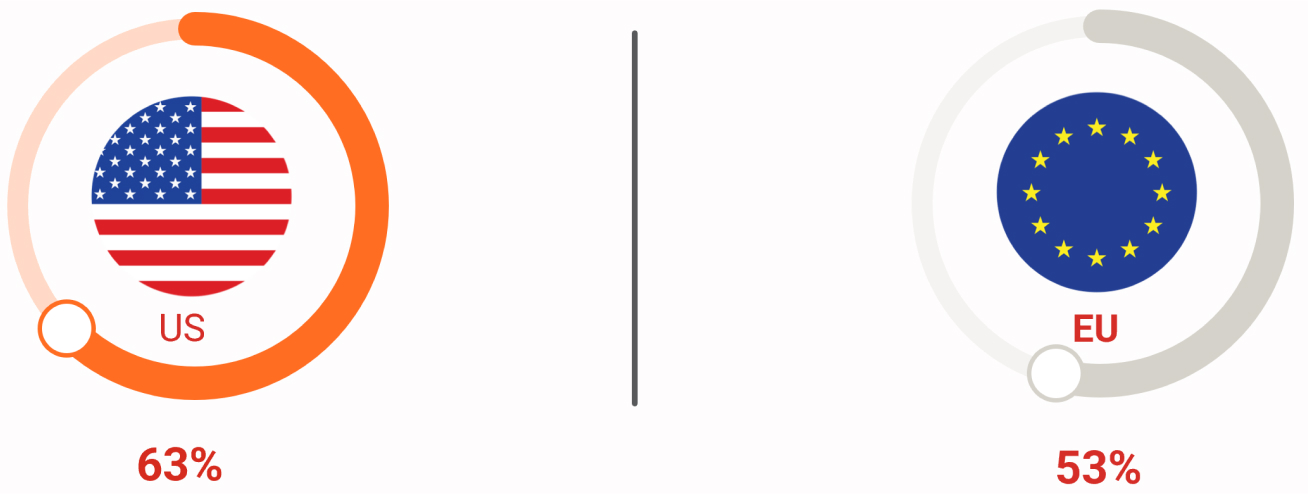
Reasons US and EU patients avoided or decreased sexual activity in the last 3 months4
Among patients with moderate-to-severe UC who decreased or avoided sexual activity in the last 3 months, fear of bowel urgency was ranked as the top reason. Additional reasons included decreased sexual desire, fear of bowel urgency-related accidents, fear of bowel movement accidents, and fear of fecal seepage.4
5. Explore HCP-Perceived UC Symptoms and HCP-Patient Communication Gaps: Insights from the CONFIDE Study
Communication Gaps Between HCPs and Patients1


EU=European; HCP=Healthcare Providers; IBD=Inflammatory Bowel Disease; TNF=Tumor Necrosis Factor; UC=Ulcerative Colitis; US=United States
References
- Travis S, Potts Bleakman A, Dubinsky MC, et al. The Communicating Needs and Features of IBD Experiences (CONFIDE) Study: US and European Patient and Health Care Professional Perceptions of the Experience and Impact of Symptoms of Moderate-toSevere Ulcerative Colitis. Inflamm Bowel Dis. 2023; doi: 10.1093/ibd/izad142 (Ahead of print).
- Schreiber S, Gibble TH, Dubinsky MC, et al. S855 Communicating Needs and Features of IBD Experiences (CONFIDE) Survey: Burden and Impact of Bowel Urgency is Similar in Patients With Moderate-to-Severe Crohn’s Disease and Ulcerative Colitis. Am J Gastroenterol. 2023;118(10S): S633-S634.
- Schreiber S, Gibble TH, Dubinsky MC, et al. Communicating Needs and Features of IBD Experiences (CONFIDE) Survey: Burden and Impact of Bowel Urgency is Similar in Patients with Moderate-to-Severe Crohn’s Disease and Ulcerative Colitis. Poster presented at American College of Gastroenterology; 20 25 October 2023; Vancouver, Canada. Poster P-0678.
- Travis S, Potts Bleakman A, Dubinsky M, et al. United States and European patient perspectives on the impact of moderate-tosevere Ulcerative Colitis on sexual activity: Communicating Needs and Features of IBD Experiences (CONFIDE) survey. Poster presented at European Crohns and Colitis Organization - 2023 Congress; 1-4 March 2023; Copenhagen, Denmark. Poster P507.
VV-MED-134811
Please rate your satisfaction with the content on the following statements:
Very Dissatisfied
Dissatisfied
Neutral
Satisfied
Very Satisfied
